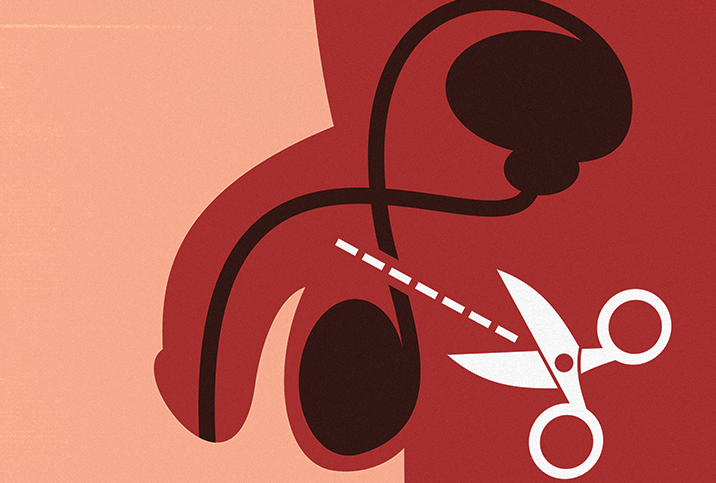What Should I Do After I Get a Vasectomy?

Vasectomies are performed with a high rate of success and a low number of risks. After the procedure, however, many patients have questions about post-procedural care, sexual performance and, especially, what might happen if they change their mind and want to father more biological children.
Here are some post-vasectomy tips.
Listen to your doctor
While a vasectomy is minimally invasive, taking care of yourself afterward is still of prime importance. Bruising, pain and some swelling are common during vasectomy recovery. Just rest and allow your body to heal. You should feel better after 24 hours, but it'll be a few more days until you're fighting fit.
Your doctor will provide specific information for aftercare, which may include some of the following instructions:
- Contact the doctor's office if you experience any bleeding or oozing, a sure sign of infection. You should also seek medical help if you see any redness or experience worsening pain, or if your temperature rises above 100.4 degrees.
- Wear compression underwear or a bandage to support your scrotum for at least 48 hours.
- Place ice packs on your scrotum for at least 48 hours to help with healing.
- Keep physical activity to a minimum for several days and avoid heavy work, lifting and sports.
- Do not engage in any sexual activity for about a week. If you do ejaculate, you might see blood in your semen or feel pain. If you have intercourse, use another form of birth control as recommended by your doctor.
What about sex?
Vasectomy surgery prevents sperm from entering the seminal fluid, but the process does not work right away: It can take up to three months for the remaining sperm-filled semen to ejaculate from both vasa deferentia, the tubes that connect the testicles to the abdominal area. In the meantime, use another form of birth control.
There is no need, however, to have any concerns about having sex after the initial postsurgical rest period. A vasectomy does not affect sex drive, orgasms or climax. Men should be able to ejaculate the same amount of semen; the only difference is that the sperm count is going to be almost nonexistent.
Men will also experience the same intense feeling and be able to achieve an erection just as well as they did before the procedure. But for birth-control purposes, it's vital they don't have unprotected sex until the post-vasectomy semen analysis gives the all clear, which happens approximately eight weeks after surgery.
Are vasectomies reversible?
Sometimes men and their partners change their minds about having children after a vasectomy. A vasectomy can be reversed, but the reversal may be problematic for several reasons:
- Trouble with the vasa deferentia. The ends of the vasa deferentia that were cut during the original vasectomy may have been cut too far apart, causing the reversal to produce tightness in the reconnection site. Depending on the type of vasectomy undertaken, the ends of the vasa deferentia may also be too scarred to reconnect.
- Time. The more time between procedure and reversal, the less chance of success.
- Positioning. Pulling the testicles higher than where they need to be may cause possible long-term tightness in that area.
- Blockage. If the seals in the vasa deferentia and the epididymis are too tight, a blockage of semen can form. In turn, this can cause a "blowout" of the seals. During the reversal, if the surgeon does not bypass or repair the blockages, the reversal is not complete.
- Cost. A reversal is not cheap, and the cost may be an out-of-pocket expense because it probably won't be covered by insurance.
Other possible risks include bleeding in the scrotum, infection and chronic pain.
The best advice is to talk to your doctor and ask every question you have before the procedure so you're aware of every scenario and side effect from the get-go.
Giddy Telehealth is an easy-to-use online portal that provides access to hundreds of healthcare professionals whose expertise covers the full scope of medical care. Many of them offer same-day video visits.


















